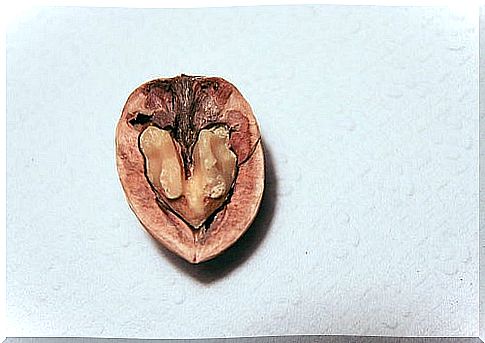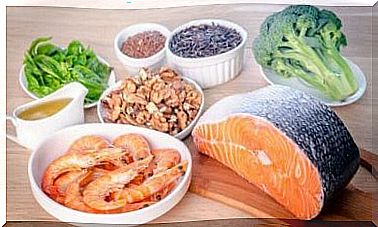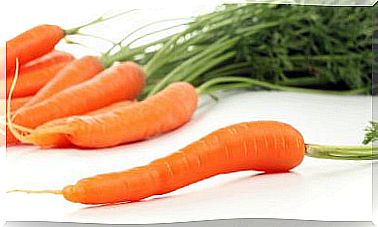Truths About Food For Memory
According to the BrightFocus Foundation, mild forgetfulness and memory lags are often part of the normal aging process. Older people simply need more time to learn a new topic or to remember an old one.
Memory problems can range from minor forgetfulness to severe forgetfulness. They can also happen often, sporadically, or in times of stress and emotional tension.
Therefore, it is important to differentiate between two types of forgetfulness or memory loss, such as:
- Punctual forgetfulness: caused by situations of fatigue, distraction or stress, in which we forget a name, a date or some similar detail.
- Recurring forgetfulness: as the name suggests, they are becoming more and more frequent. In these we can not remember events or things that we have done.
Next, we will tell you a little more about memory impairment and we will mention some foods that will help you enhance it.
How can we cope with memory loss?
Over time, some abilities are lost due to cognitive decline. However, we must make an effort to observe ourselves and even perform exercises to assess this condition.
People often have a hard time recognizing this problem, and if not handled properly it can also cause:
- States of discouragement.
- Depression.
- Anxiety.
In case of doubt or concern, we should consult a specialist doctor, since there are some diseases that present memory loss as one of their symptoms.
According to a study published in The New England Journal of Medicine , any process that alters the frontal lobes or their connections with the posterior cortical regions and subcortical structures can lead to impaired working memory.
In addition, it can also be the cause of degenerative diseases, such as:
- Parkinson.
- Huntington.
- Lewy body dementia.
- Progressive supranuclear palsy.
It is essential to diagnose and treat this condition as soon as possible to avoid rapid deterioration.
At the same time we can help a lot by eating in a balanced way to nourish our brain.
In general, a varied diet, which includes fresh foods, fruits, vegetables and legumes, will provide us with essential nutrients to protect and tone our central nervous system. Although, of course, this does not prevent the appearance of a possible cognitive impairment.
Thus, there are some foods that are especially recommended for their beneficial properties for memory:
Walnuts

Walnuts are an important source of flavonoids . Studies have shown that absorbed flavonoids penetrate and accumulate in the brain regions of the hippocampus involved in learning and memory. The neurobiological correlates of flavonoids are an expression of neuroprotective and neuromodulatory proteins that promote neurogenesis, improved blood flow, and angiogenesis that support brain wellness.
However, the correlates of neuroelectric activities that are associated with walnut flavonoid effects on neurocognition, neuronal timing, memory, recall, mood, and behavior are not well understood.
bruise
Research has tried to determine the possible effects of maca root on cognitive function. In a study published in 2016 by researchers from China, a protective role of this root in cognition was determined.
In the study, maca root improved cognitive function, motor coordination, and endurance capacity in middle-aged mice, accompanied by increased mitochondrial respiratory function and increased autophagy-related proteins in the cortex.
These findings suggest that maca is a newly defined nutritional plant that can improve mitochondrial function and increase autophagy-related proteins and may be an effective functional food for slowing age-related cognitive decline.
Ginkgo biloba
There are several studies carried out in rats on the function of the extract of Ginkgo biloba leaves . Polish researchers in 2009 determined that long-term administration of Ginkgo biloba extract can improve spatial memory and motivation with significant changes in monoamine content and metabolism in various brain regions.
Regarding its effect on human cognition, the Journal of Neuro-Oncology published in 2012 the second phase of a study that tried to determine the effect of Ginkgo biloba on working memory in patients with dementia. Thus, it was determined that the ginkgo biloba improves behavioral performance on the working memory task.
Citrus

Studies such as the one published in 2014 by the Pakistan Journal of Pharmacy determine that citrus fruits such as lemon and pomegranate have Phytochemicals and essential nutrients that increase memory, particularly short-term memory. Therefore, it can be concluded that the flavonoids in these citrus fruits may be responsible for the memory-enhancing effects.
- We can eat them or drink them in juice, but it must be natural, prepared by us at that time.
- We can sweeten it with a little honey.
Cognitive impairment can be common in advanced ages. However, it is always good to consult with a specialist. Remember that if your condition is advanced, what you should do is go to a specialist.









